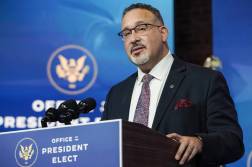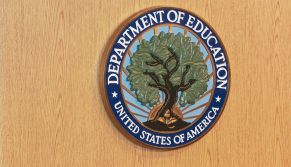Awareness of new Ed. Dept. ‘third-party servicer’ guidance is low, Educause survey finds

A poll of 185 Educause members suggests that more than half are unaware of the U.S. Department of Education’s new “third-party servicers” guidance.
The informal survey, conducted last week and published on Monday, found that 56% of respondents were unfamiliar with the “Dear Colleague” letter issued by the department in February.
The letter includes guidance that could significantly expand institutional reporting requirement — and introduce new restrictions — for colleges working with a wide range of companies under the department’s newly expanded definition of “third-party servicers.”
Among survey respondents familiar with the guidance, 40% said they considered all service agreements to be a form of outsourcing under the new requirements, while 37% said they did not, and 23% said they didn’t know. Fifty-four percent took an unfavorable view of the new guidance, 35% reported a neutral view and 11% said they supported it.
While most survey respondents familiar with the new guidance said they are seeking further clarification on how it might impact them, 29% indicated that their institution is already reviewing its contracts with providers.
Survey respondents familiar with the new guidance reported a lack of clarity about how new requirements might affect their institutions, with “identified outcomes ranging from uncertainty to major disruptions,” Educause researchers Nicole Muscanell and Jenay Robert wrote in a report outlining the poll’s results.
“If the new TPS guidance is here to stay, colleges and universities will need to review numerous existing contracts and will face greater constraints in the adoption of future services,” they wrote. “The challenges related to compliance might drive institutions to adopt more centralized practices, whether they feel that is holistically best for them or not.”




